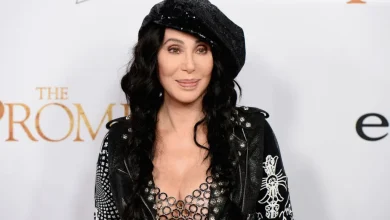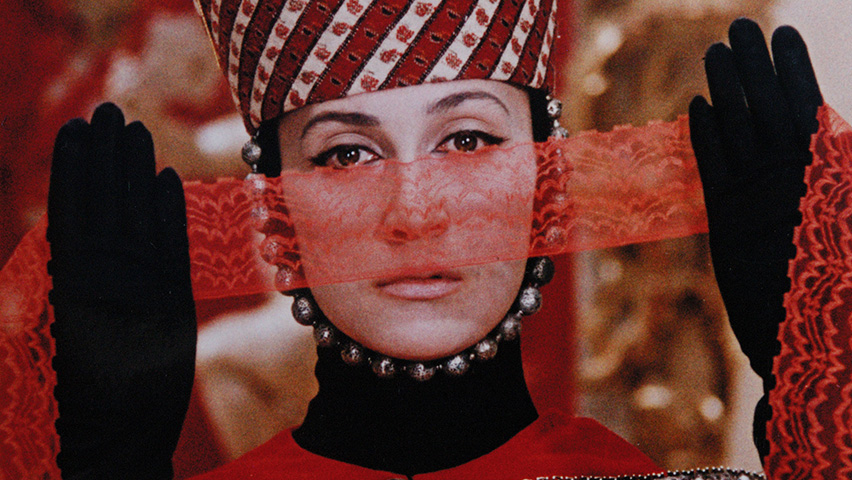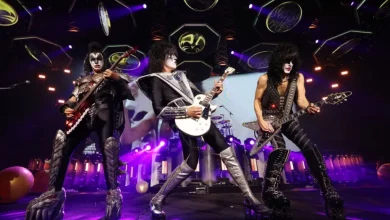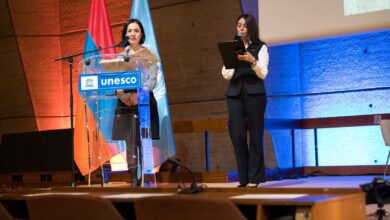Two Armenian documentaries to air on PBS
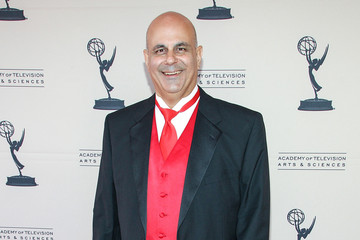
 Two Armenian documentaries, by the same filmmaker, will be shown back-to-back on a Los Angeles PBS station. Such will be the case, on KLCS-TV, on Sunday, April 19 at 5 PM and on Tuesday, April 21 at 8 PM, according to armenianlife.com.
Two Armenian documentaries, by the same filmmaker, will be shown back-to-back on a Los Angeles PBS station. Such will be the case, on KLCS-TV, on Sunday, April 19 at 5 PM and on Tuesday, April 21 at 8 PM, according to armenianlife.com.
Emmy award-winning journalist Peter Musurlian will debut, on non-Armenian television, “Historic Armenia” and “The 100-Year-Old Survivor.” The documentaries will be seen by about 40,000 people, at least a third of whom, will not be Armenian.
The documentary highlights families that came to the San Joaquin Valley after the 1915 Genocide. Those immigrants became involved in the Valley’s agriculture, education, arts and culture, politics and government and business communities.
Those interviewed for the film include the family of basketball coach Jerry Tarkanian, television journalist Stefani Booroojian, retired California Supreme Court Justice Marvin Baxter, Fresno County Supervisor Debbie Poochigian and Honorary Counsel of the Republic of Armenia Berj Apkarian.
Special guests will be in the KVPT studios during the broadcast to talk more about their experiences.
Peter Musurlain (PM) discussesed hope for the future and why the world should never turn a blind eye to injustice in a Q&A with Dan Lothian (DL) of Heart Beings.
DL: How significant was the Pope’s declaration calling the slaughter of Armenians “the first genocide of the 20th century?”
PM: This Armenian Genocide, of 1915 to 1923, is unique in that it is unresolved, with more than 1.5 million innocent people killed and 500,000 others fleeing for their lives, ending up in places like France, England, Australia, the Middle East, and North and South America. As a cardinal, the Pope was a beloved friend of the Armenian community of Argentina. Some 20 countries and 43 of our 50 state legislatures have recognized as “genocide” what Turkey has never acknowledged. So, there have been no apologies, no reparations, no restitution. Having someone as significant as Pope Francis effortlessly pay tribute to the victims of “the first genocide of the 20th century,” left Armenians around the world tearful and grateful. Email and social media instantly sent reaction to the Pope’s comments to hundreds of thousands of Armenians who are the children and grandchildren of genocide survivors.
DL: The Pope used the analogy of “a wound bleeding without a bandage” when he spoke about evil being concealed or denied. Is that the reality of this event for Armenians?
PM: Armenians, even 100 years later, might be better off not thinking about these things. But how do you ignore the fact that you are here today, because someone in your immediate family survived an effort to wipe out two-thirds of the Christian Armenians living in the Ottoman Empire? How do you forgive, forget, and move on when the Turkish government has spent a hundred years cleansing their history books of the crime and even putting people in jail for suggesting that it was a genocide? The wound is two to three generations removed, but it is still as fresh as it was in 1915.
DL: What is your message to political leaders and others who have been afraid to speak boldly on this issue because of diplomatic risks?
PM: Overwhelmingly, politicians and historians have nothing to argue about. The denial of the events, as most know them to be, would be almost laughable in any other context. But Turkey is a NATO ally. Turkey has an air force base in an unstable part of the world. There are members of congress who aggressively deny the Armenian Genocide to curry favor with the well-financed Turkish lobby. The example of an unrepentant and unpunished Turkey no doubt has emboldened lawless governments to do what we have seen in Cambodia, Bosnia, and far-too-many regions in Africa. We know Hitler said, “Who today speaks of the annihilation of the Armenians?” as he prepared his Final Solution.
DL: What can we all learn from this?
PM: We all see, in our everyday lives, the good in people, and that gives us a sense of hope for the future. But we can also see how bad people can succeed at executing the most vile crime on Earth and then see good people rationalize a tempered reaction. It is disheartening to see it, but it is a reality.
DL: Why is acknowledging one word, “genocide,” so important?
PM: “Genocide” means it was an organized, systematic government plan to cleanse the crumbling Ottoman Empire of its Christian Armenian subjects. Armenians had lived on that land for thousands of years. It took less than a decade to eliminate them. The Turks want you to believe there were atrocities on both sides and that the deaths were due to civil war during the confusion of WWI. No one believes that, but that is their story, and they’re sticking to it. To call it anything short of what it was would be a lie.
DL: Why should people around the world who are dealing with their own battles for truth and justice care about this?
PM: No doubt, history repeats itself, and it has. It also makes us less human to turn a blind eye to such injustice. That noted, it is difficult for people, in their everyday lives, to keep track of everything that is happening in the world, let alone what happened 100 years ago. But our leaders should not be distracted or disinterested. When that happens, you have military leaders in Bosnia, in the 1990s, in Europe of all places, think they can get away with ethnic cleansing. Bill Clinton was proud of stopping the atrocities in Bosnia, but he believes he could have saved 300,000 lives in Rwanda if his administration had acted sooner.
DL: You have two new documentaries on Armenia. Why did you do these projects?
PM: I have been shooting, writing, and editing short- and long-form news stories for 30 years. It is what I do. I have come to a point in my life where I have the time, resources, and perspective to report on the Armenian Genocide, in documentary form, in ways not often seen or ever attempted. The result, I hope, will educate every person who sees the films and leave them searching for their own truths.



